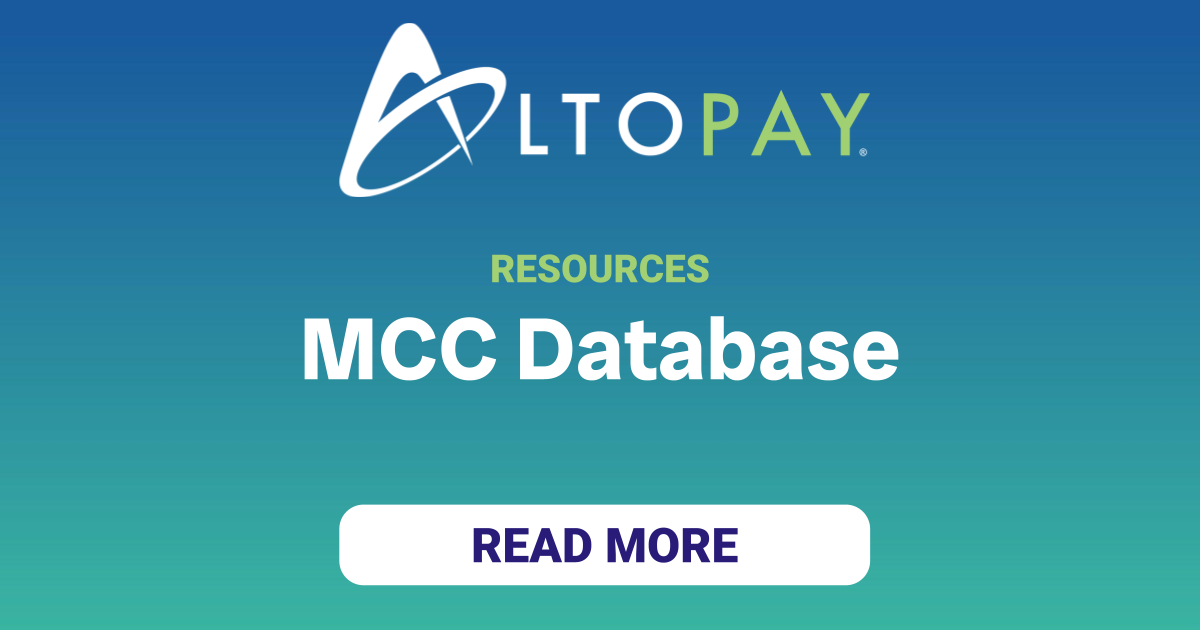DEFINITION
MCC 7994: Video Game Arcades and Entertainment Centers
MCC Database / 7994: Video Game Arcades and Entertainment Centers
Every merchant is assigned a merchant category code (MCC) — a four-digit number used by card networks to classify the primary business activity. MCCs determine how transactions are processed, how fees are structured, and how risk is assessed.
Let’s take a closer look at MCC 7994.
What is MCC 7994?
For brick-and-mortar locations, MCC 7994 applies to merchants operating video game arcades and entertainment centers — like coin-operated games, pinball machines, skeeball, laser tag, indoor playgrounds, and related interactive activities.
It also includes establishments that offer internet cafés focused on gaming experiences. If your physical location primarily provides game-based entertainment, this is the correct classification.
For online businesses, MCC 7994 applies to merchants who offer virtual arcade gaming, skill-based game venues, or internet cafes with significant gaming components. This includes platforms where customers pay for access to online video games, multiplayer amusements, or to participate in virtual token- or ticket-based gaming experiences.
Is MCC 7994 considered high risk?
Yes, MCC 7994 is considered moderate to high risk.
These businesses often process many small-value transactions and may attract a younger demographic, increasing fraud and dispute exposure.
While not as high-risk as gambling MCCs, oversight and potential reserves are common due to dispute trends.
Does MCC 7994 require a license?
Yes, depending on location and offerings:
- If your center includes gambling-like skill games, you may need certification or registration with card networks.
- Local business licenses or health and safety compliance may apply for indoor recreational spaces.
- Age restrictions or waivers might be required in some jurisdictions, especially when minors play on-site.
Does MCC 7994 have special fees or pricing?
Pricing for MCC 7994 depends on your business type. But in most situations, businesses encounter the following:
- Higher interchange rates tied to elevated fraud risk categories.
- Reserve accounts that freeze a portion of your revenue
- Registration or compliance fees tied to skill-game oversight programs.
These cost adjustments reflect increased risk exposure and processing complexity.
Can I have multiple MCCs if I offer multiple services?
Yes — but only if services are truly separate.
For example if your virtual arcade also sells retail merchandise, it may qualify for another MCC. But a unified account for both gaming and retail may have MCC 7994 as the sole designation.
What are some similar MCCs?
Other entertainment-related codes include:
Ready to Launch or Upgrade Your Arcade Payment Systems?
AltoPay supports entertainment businesses with tailored merchant accounts, flexible fee structures, and compliance tools to keep your games running and payments flowing smoothly.
FREQUENTLY ASKED QUESTIONS
What else do I need to know about MCCs?
Are MCCs the same across all card networks and acquirers?
Card brands follow shared definitions, but assignment may vary slightly depending on the interpretation of the acquirer or processor. Some industries and business models are harder to classify than others.
Who decides my MCC?
The acquiring bank or processor consults lists provided by the card brands and assigns your MCC during underwriting. The chosen MCC should reflect your primary business activity.
You can’t choose your own MCC. But if the assigned MCC seems incorrect, you can request a review with supporting documentation.
How do I know what my MCC is?
Your MCC appears on the official document provided by your acquirer or processor. Document names vary and might be called a VAR sheet, registration form, onboarding sheet, or MID credential form. You can also check your processor contract or payment platform dashboard. If unclear, contact your acquirer or processor directly.
Does my MCC affect my interchange rate?
Definitely. MCCs influence fee structures and risk tiers. It’s important to have correct MCC classification to avoids unexpected costs.
Can my MCC affect my ability to process payments?
Certainly. High-risk MCCs may trigger restrictions, reserves, or additional oversight that can impact account stability.
How often can my MCC change?
Your MCC typically stays the same unless your primary business model changes significantly. If your primary source of revenue shifts, you can request a reassignment. You’ll probably need to provide supporting documentation to support your argument.
What happens if I’m misclassified with the wrong MCC?
Misclassification can lead to wrong fees, unnecessary restrictions, or even account denial. So it’s important to have an accurate MCC assignment.
You can challenge your MCC assignment with supporting documents such as invoices, product pages from your website, and processing history.


